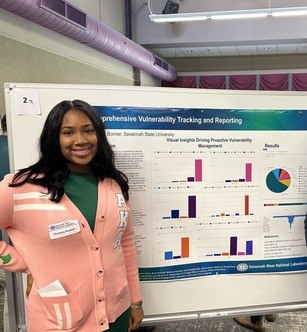Students and recent grads may apply to conduct research and technical projects at national laboratories
As the nation continues to build a diverse, clean-energy workforce, the Department of Energy (DOE) today announced that applications are being accepted for the Summer 2025 term of two undergraduate internship programs.
The Office of Science Undergraduate Laboratory Internships (SULI) program and the Community College Internships (CCI) program are unique opportunities open to all current and recent college undergraduates. Interns will learn about science and technology careers, team science, networking, and gain the experience needed to transition from internship to employment.
The application deadline for both programs is January 8, 2025, at 5:00 p.m. EST. A number of workshops, an alumni panel, an online internship fair, and technical support will be available to applicants throughout the process.
Interns chosen will work directly with national laboratory scientists and engineers, assisting them on research or technology projects that support the DOE mission and address critical scientific challenges of importance to the nation, including global warming.
SULI is open to full-time students attending 4-year institutions and community colleges or recent graduates within two years of receiving their bachelor’s degree or associate degree. CCI is for community college students. Both programs are stipend-based and offered three times annually in Fall, Spring, and Summer. Participants residing outside the commuting area are offered round-trip travel to and from the host lab, and financial assistance with lodging.
Workshop Details

Three workshops are planned to provide strategies for submitting a compliant application and learning about the internship experience from the voices of CCI and SULI alumni.
Two additional workshops will introduce the program and application process followed by a final workshop for review of the application process for each program.
In addition, a live alumni panel discussion will showcase the research opportunities and internship experiences of students who have taken part in the programs.
- CCI application assistance workshop: October 29, 2024, from 2:00 – 3:00 pm EST (register here)
- SULI application assistance workshop: November 6, 2024, from 2:00 – 3:00 pm EST (register here)
- CCI/SULI panel workshop: December 3, 2024, from 2:00 – 3:00 pm EST (register here)
Summer Internship Fair
In addition to the workshops, prospective SULI and CCI applicants are invited to engage with representatives from the DOE national laboratories at a virtual Summer Internship Fair scheduled November 14, 2024, from 1:00–5:00 pm EST (register here). During the fair, WDTS staff as well as researchers from the national laboratories will be online and available via chat.
Furthermore, the program office invites applicants and letter of recommendation writers to attend office hours to answer administrative questions such as those pertaining to uploading transcripts, submitting letters of recommendation, and general inquiries. Office hours are scheduled on December 11th and 18th from 2:00 – 3:00 pm EST. Registration (register here) is required for attendance.
The programs offer unique opportunities to gain a glimpse into discovery science research that is at the cutting edge of national priorities.
Sarah Cole of Boise State University, an alumnus of the SULI internship program, was able to learn and contribute to scientific research on energy storage, a key priority for the DOE Office of Science and the nation.
“My SULI internship at SLAC National Accelerator Laboratory inspired me to grapple with the question: ‘How can we engineer battery materials to store energy more efficiently?’ My research in the SLAC-Stanford Battery Center focused on elucidating the electrochemical behavior of novel anode compositions based on the Earth-abundant, high storage capacity material: silicon.
“I gained hands-on experience fabricating coin cells, testing the battery prototypes, and conducting experiments at the Stanford Synchrotron Radiation Lightsource, teaching me of the importance of engineering high-performance energy storage materials to meet society’s growing energy demand,” Cole said.
SULI and CCI are managed by the Office of Workforce Development for Teachers and Scientists (WDTS) in the Office of Science. More information including workshop registration can be found at the WDTS website.
Check out some of the outstanding participants of the 2024 Workforce Development for Teachers and Scientists Summer Internship programs in this video.
# # #This work was supported by the U.S. Department of Energy’s Office of Science, through the Biological and Environmental Research program as part of the Atmospheric System Research program.

